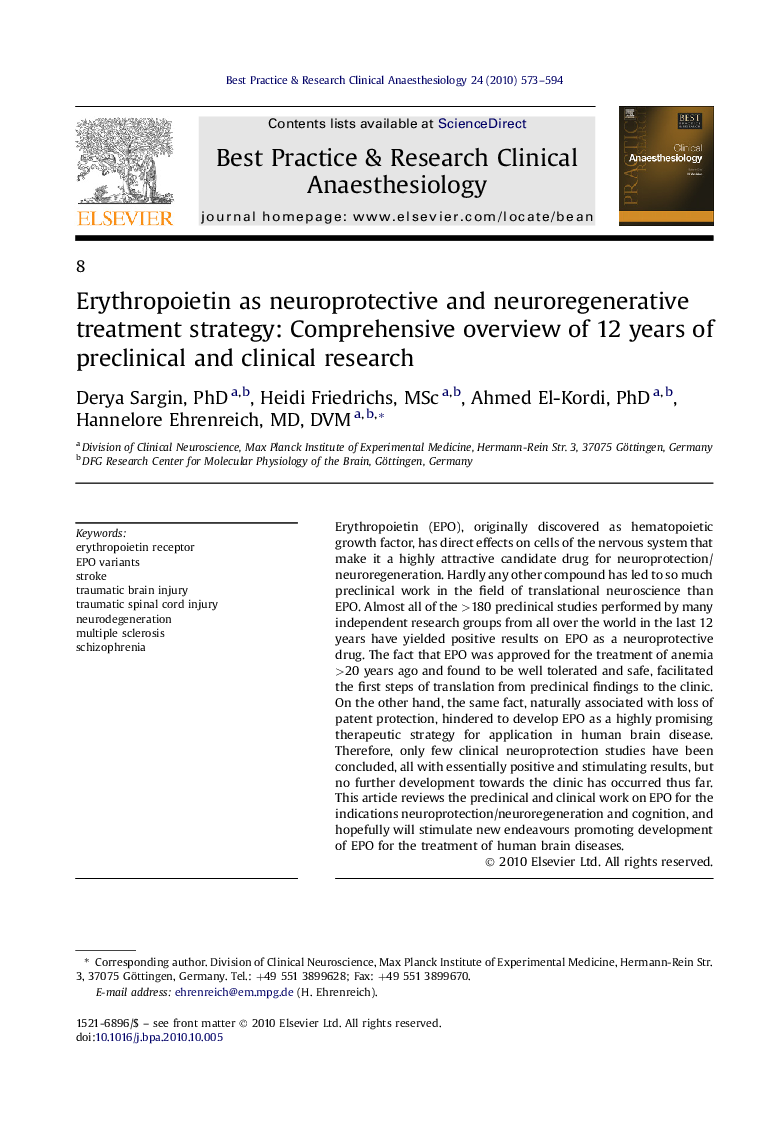| Article ID | Journal | Published Year | Pages | File Type |
|---|---|---|---|---|
| 2748599 | Best Practice & Research Clinical Anaesthesiology | 2010 | 22 Pages |
Erythropoietin (EPO), originally discovered as hematopoietic growth factor, has direct effects on cells of the nervous system that make it a highly attractive candidate drug for neuroprotection/neuroregeneration. Hardly any other compound has led to so much preclinical work in the field of translational neuroscience than EPO. Almost all of the >180 preclinical studies performed by many independent research groups from all over the world in the last 12 years have yielded positive results on EPO as a neuroprotective drug. The fact that EPO was approved for the treatment of anemia >20 years ago and found to be well tolerated and safe, facilitated the first steps of translation from preclinical findings to the clinic. On the other hand, the same fact, naturally associated with loss of patent protection, hindered to develop EPO as a highly promising therapeutic strategy for application in human brain disease. Therefore, only few clinical neuroprotection studies have been concluded, all with essentially positive and stimulating results, but no further development towards the clinic has occurred thus far. This article reviews the preclinical and clinical work on EPO for the indications neuroprotection/neuroregeneration and cognition, and hopefully will stimulate new endeavours promoting development of EPO for the treatment of human brain diseases.
